Peugeot 308 vs VW Tiguan - Differences and prices compared
Compare performance (195 HP vs 272 HP), boot space and price (29200 £ vs 33300 £ ) at a glance. Find out which car is the better choice for you – Peugeot 308 or VW Tiguan?
Costs and Efficiency:
When it comes to price and running costs, the biggest differences usually appear. This is often where you see which car fits your budget better in the long run.
Peugeot 308 has a somewhat advantage in terms of price – it starts at 29200 £ , while the VW Tiguan costs 33300 £ . That’s a price difference of around 4063 £.
Fuel consumption also shows a difference: VW Tiguan manages with 1.40 L and is therefore significantly more efficient than the Peugeot 308 with 2.30 L. The difference is about 0.90 L per 100 km.
As for electric range, the Peugeot 308 performs convincingly better – achieving up to 450 km, about 324 km more than the VW Tiguan.
Engine and Performance:
Under the bonnet, it becomes clear which model is tuned for sportiness and which one takes the lead when you hit the accelerator.
When it comes to engine power, the VW Tiguan has a clearly perceptible edge – offering 272 HP compared to 195 HP. That’s roughly 77 HP more horsepower.
In acceleration from 0 to 100 km/h, the VW Tiguan is clearly perceptible quicker – completing the sprint in 5.90 s, while the Peugeot 308 takes 7.60 s. That’s about 1.70 s faster.
In terms of top speed, the VW Tiguan performs slight better – reaching 242 km/h, while the Peugeot 308 tops out at 225 km/h. The difference is around 17 km/h.
There’s also a difference in torque: VW Tiguan pulls evident stronger with 400 Nm compared to 300 Nm. That’s about 100 Nm difference.
Space and Everyday Use:
Cabin size, boot volume and payload all play a role in everyday practicality. Here, comfort and flexibility make the difference.
Both vehicles offer seating for 5 people.
In curb weight, Peugeot 308 is a bit lighter – 1453 kg compared to 1599 kg. The difference is around 146 kg.
In terms of boot space, the VW Tiguan offers evident more room – 652 L compared to 412 L. That’s a difference of about 240 L.
In maximum load capacity, the VW Tiguan performs somewhat better – up to 1650 L, which is about 327 L more than the Peugeot 308.
When it comes to payload, VW Tiguan minimal takes the win – 533 kg compared to 503 kg. That’s a difference of about 30 kg.
Who wins the race?
The VW Tiguan proves to be leaves the rival little chance and therefore becomes our DriveDuel Champion!
VW Tiguan is the better all-rounder in this comparison.

VW Tiguan
Costs and Consumption
View detailed analysis
Engine and Performance
View detailed analysis
Dimensions and Body
View detailed analysis
Peugeot 308
The Peugeot 308 brings a sleek, feline profile and an unexpectedly upscale cabin, with clever packaging and materials that feel a touch more premium than you might expect. It’s composed on the road, easy to live with for daily life, and a smart choice if you want a stylish hatch that still behaves when the road gets interesting.
details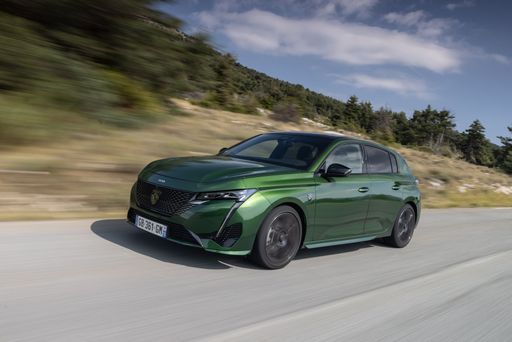
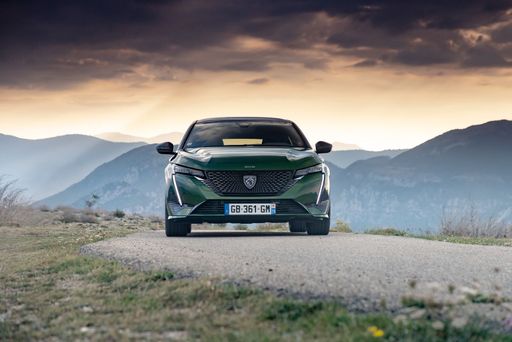
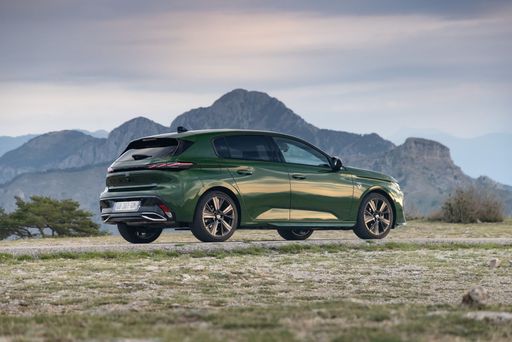
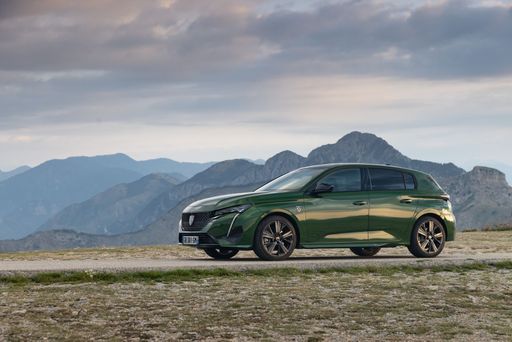
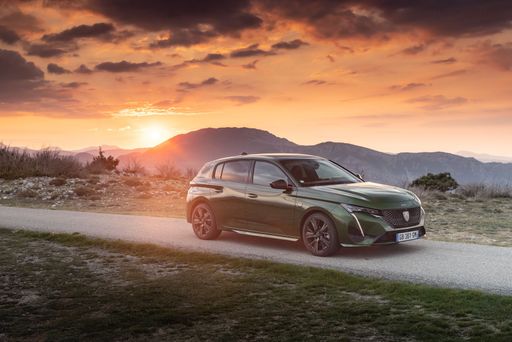
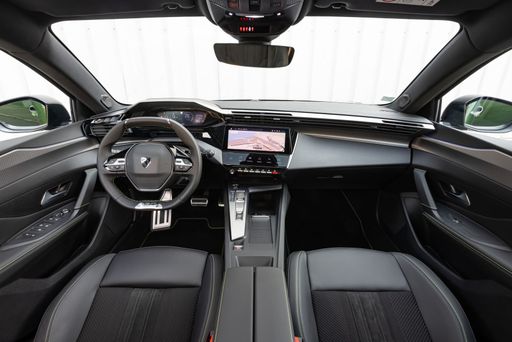
VW Tiguan
The VW Tiguan blends sensible family practicality with a dash of German polish, delivering a calm, reassuring ride and a cabin that never feels like an afterthought. For buyers who want an SUV that’s easy to live with yet still nicely dressed, the Tiguan is the grown‑up choice that keeps a cheeky wink in reserve.
details





Costs and Consumption |
|
|---|---|
|
Price
29200 - 42600 £
|
Price
33300 - 51900 £
|
|
Consumption L/100km
2.3 - 5 L
|
Consumption L/100km
1.4 - 8.4 L
|
|
Consumption kWh/100km
15.60 kWh
|
Consumption kWh/100km
-
|
|
Electric Range
78 - 450 km
|
Electric Range
118 - 126 km
|
|
Battery Capacity
0.40 kWh
|
Battery Capacity
19.70 kWh
|
|
co2
0 - 129 g/km
|
co2
32 - 190 g/km
|
|
Fuel tank capacity
42 - 52 L
|
Fuel tank capacity
45 - 58 L
|
Dimensions and Body |
|
|---|---|
|
Body Type
Hatchback
|
Body Type
SUV
|
|
Seats
5
|
Seats
5
|
|
Doors
5
|
Doors
5
|
|
Curb weight
1453 - 1749 kg
|
Curb weight
1599 - 1890 kg
|
|
Trunk capacity
314 - 412 L
|
Trunk capacity
490 - 652 L
|
|
Length
4367 mm
|
Length
4539 mm
|
|
Width
1852 mm
|
Width
1842 - 1859 mm
|
|
Height
1438 mm
|
Height
1656 - 1658 mm
|
|
Max trunk capacity
1258 - 1323 L
|
Max trunk capacity
1486 - 1650 L
|
|
Payload
430 - 503 kg
|
Payload
460 - 533 kg
|
Engine and Performance |
|
|---|---|
|
Engine Type
Petrol MHEV, Diesel, Plugin Hybrid, Electric
|
Engine Type
Petrol, Petrol MHEV, Diesel, Plugin Hybrid
|
|
Transmission
Automatic
|
Transmission
Automatic
|
|
Transmission Detail
Dual-Clutch Automatic, Automatic Gearbox, Reduction Gearbox
|
Transmission Detail
Dual-Clutch Automatic
|
|
Drive Type
Front-Wheel Drive
|
Drive Type
All-Wheel Drive, Front-Wheel Drive
|
|
Power HP
131 - 195 HP
|
Power HP
130 - 272 HP
|
|
Acceleration 0-100km/h
7.6 - 10.6 s
|
Acceleration 0-100km/h
5.9 - 10.6 s
|
|
Max Speed
170 - 225 km/h
|
Max Speed
210 - 242 km/h
|
|
Torque
230 - 300 Nm
|
Torque
220 - 400 Nm
|
|
Number of Cylinders
3 - 4
|
Number of Cylinders
4
|
|
Power kW
96 - 144 kW
|
Power kW
96 - 200 kW
|
|
Engine capacity
1199 - 1598 cm3
|
Engine capacity
1498 - 1984 cm3
|
General |
|
|---|---|
|
Model Year
2025
|
Model Year
2024 - 2025
|
|
CO2 Efficiency Class
C, D, B, A
|
CO2 Efficiency Class
G, D, E, F, B
|
|
Brand
Peugeot
|
Brand
VW
|
Is the Peugeot 308 offered with different drivetrains?
Available configurations include Front-Wheel Drive.




